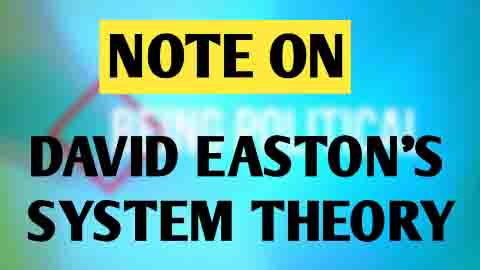David Easton System Theory Or Political System Theory
David Easton System theory is an important theory in comparative politics. A system is defined as a set of related units, which interact with each other on a continuous basis.
David Easton System Theory Or Political System Theory Read More »

